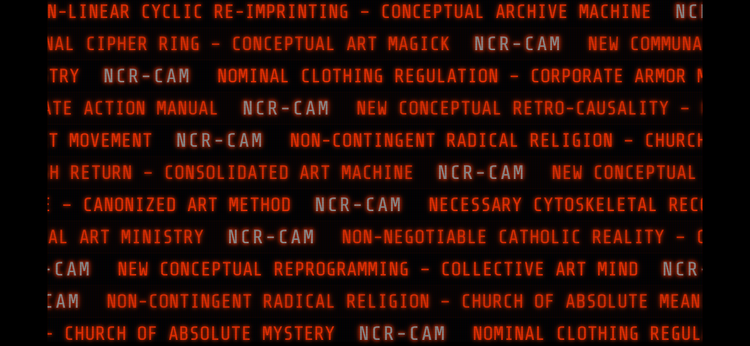Meta’s Fact-Checking Shakeup: A Political Storm and an AI Opportunity

Meta’s recent decision to halt fact-checking has sparked outrage, with critics decrying it as a dereliction of duty in an age of rampant misinformation. The timing couldn’t be more fraught, as we navigate a polarized political landscape where “truth” itself feels malleable. In the shadow of Trump’s “post-truth” presidency, the move has been cast by some as a capitulation to lawlessness—a signal that Meta is willing to abandon responsibility in the pursuit of neutrality or profit.
But beyond the political firestorm lies a quieter, more profound shift: the potential for AI systems to evolve in ways human oversight has never allowed. Fact-checking, for all its virtues, is not without bias. It often seeks to correct blatant falsehoods or egregious misinformation but rarely addresses the murkier waters of “mostly true” opinions, subjective interpretations, or nuanced perspectives. In suspending fact-checking, Meta may unwittingly create a space for AI to grapple with these complexities, even as humans grapple with the fallout.
Fact-Checking’s Blind Spot: Nuance and Ambiguity
At its core, fact-checking serves a binary function: separating truth from falsehood. But human discourse isn’t binary. It exists on a spectrum of accuracy, from outright lies to subjective interpretations that may be “mostly right” or even “right but incomplete.”
1. Correcting Lies, Ignoring Nuance
Fact-checkers prioritize correcting clear and impactful misinformation: fabricated statistics, doctored images, or viral conspiracy theories. But what about claims that are technically true but contextually misleading? Or opinions that are rooted in fact but presented with heavy bias?
Example: A politician might claim, “Unemployment is at its lowest point in decades,” which could be factually accurate while omitting the caveat that underemployment and wage stagnation remain critical issues. Fact-checkers may leave such claims unchallenged, inadvertently reinforcing a simplistic narrative.
2. The “Mostly Right” Problem
In a world driven by soundbites, nuanced arguments often go untagged. For example:
• A pundit argues that inflation is driven solely by government spending. While partially true, this ignores supply chain disruptions and global market factors.
• A social media post claims, “Electric cars are eco-friendly,” glossing over the environmental cost of battery production and disposal.
Fact-checkers rarely engage with these “mostly right” takes, leaving AI systems to internalize them as unqualified truths. This creates a skewed model of reality, where oversimplified narratives dominate nuanced understanding.
A Political Powder Keg: Fact-Checking in the Trump Era
The fact-checking debate isn’t just about epistemology—it’s deeply political. Donald Trump’s presidency, marked by a cavalier disregard for facts, forced platforms like Meta to adopt aggressive moderation policies. But these efforts often backfired, feeding accusations of bias from conservatives who felt disproportionately targeted.
1. Fact-Checking as a Political Tool
For Trump and his base, fact-checking was framed as an act of censorship—a weapon wielded by liberal elites to suppress dissent. Meta’s decision to suspend fact-checking could be seen as a calculated move to placate this demographic, signaling a shift away from interventionist policies that have alienated right-wing users.
2. Lawlessness vs. Free Speech
Critics argue that the absence of fact-checking creates a “lawless” digital environment, where lies can proliferate unchecked. But the underlying tension is philosophical: is it better to risk misinformation in the name of free expression, or to impose moderation at the cost of neutrality? Meta’s decision highlights this unresolved debate, amplifying the political stakes.
How AI Benefits From the Chaos
While the political implications of Meta’s move are troubling, the impact on AI could be transformative. By removing the crutch of human fact-checking, Meta inadvertently creates an environment where machines must learn to navigate ambiguity and incomplete information—a truer reflection of the human condition.
1. Grappling With Nuance
Without fact-checking tags to guide them, AI models are forced to engage with the spectrum of accuracy. They must learn to parse arguments, identify gaps, and weigh competing perspectives rather than relying on binary labels.
2. Identifying Patterns in Bias
Unfiltered data allows AI to detect biases in discourse itself. For example, models might observe that economic arguments often focus on corporate narratives while ignoring labor perspectives, or that environmental discussions downplay global inequities. This awareness could lead to more balanced and context-sensitive AI outputs.
3. Developing Skepticism
Fact-checking often teaches AI to treat labeled data as gospel. In its absence, models must adopt a more cautious approach, flagging uncertainty and seeking corroboration rather than defaulting to confidence. This shift could produce systems that better understand complexity and are more transparent about their limitations.
The Way Forward: Balancing Freedom and Accountability
Meta’s fact-checking pause isn’t a permanent solution—it’s a reckoning. It forces us to confront the limitations of both human oversight and machine learning, while challenging the platforms themselves to rethink their role in shaping public discourse.
1. Transparent Tagging of Data Gaps
Instead of fact-checking claims selectively, platforms could implement meta-tags indicating when content is unverified or underrepresented. This approach doesn’t stifle discussion but signals areas where users and AI should exercise caution.
2. Training AI for Context
AI systems must move beyond binary truths, learning to evaluate claims within their broader context. This requires exposing models to diverse datasets that capture not just facts but the complexity of human argumentation.
3. Navigating the Political Fallout
Meta must communicate its decision not as an abdication of responsibility but as an evolution of it. By framing the shift as an experiment in fostering machine-driven nuance, the company could reclaim the narrative while addressing legitimate concerns about misinformation.
Truth in the Eye of the Beholder
The outcry over Meta’s fact-checking pause reflects our discomfort with uncertainty. Humans crave clear lines between truth and lies, but reality is rarely so simple. For AI, this messiness is a gift—a chance to learn from the full spectrum of human expression, unmediated and unfiltered.
In the short term, the absence of fact-checking might feel like a loss: a concession to chaos in an already fractured information ecosystem. But in the long run, it could create machines that are not just smarter, but wiser—better equipped to navigate the complexities of human discourse than any fact-checker could ever hope to be.
Sometimes, stepping back is the boldest move of all.






Member discussion